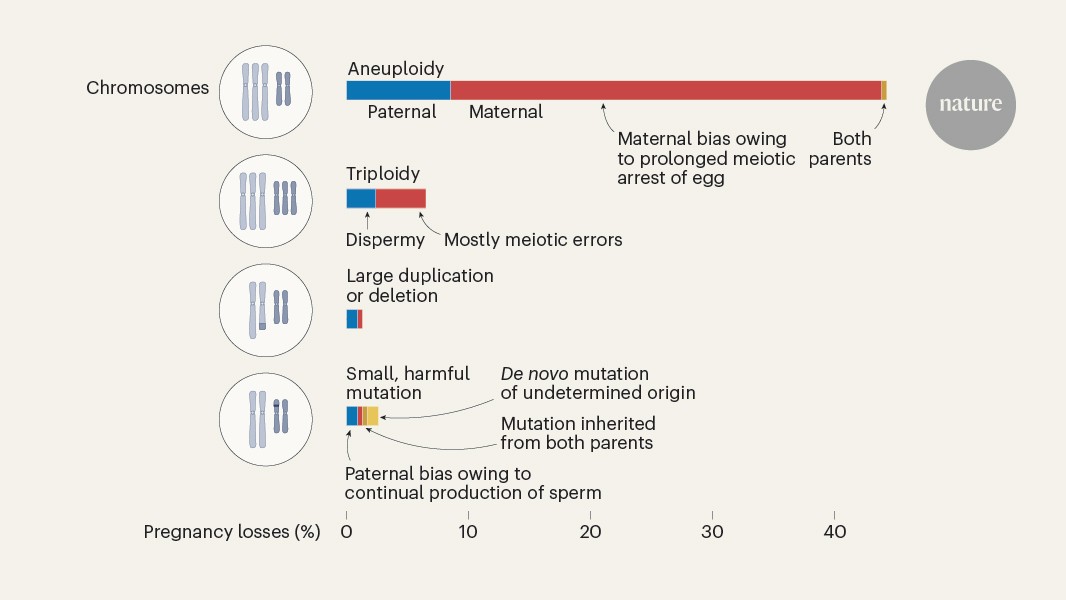
""Every live birth happens against all odds because many things can - and often do - go wrong during human reproduction.""
""Spontaneous pregnancy loss is surprisingly common in humans, affecting around 15% of clinically recognized pregnancies...""
""Many losses remain unexplained, amplifying the parents' distress and preventing accurate risk assessments for future pregnancies.""
""They sequence hundreds of fetal genomes from lost pregnancies along with parental genomes and identify probable genetic causes in around 55% of cases.""
A recent genomic study published in Nature examines early pregnancy loss, a common occurrence affecting roughly 15% of clinically recognized pregnancies. The study, led by Arnadottir et al., sequenced fetal genomes from lost pregnancies along with parental genetic information. It identified probable genetic causes in about 55% of these cases, shedding light on the complex genetic landscape of human reproduction. Despite several known factors, many losses remain unexplained, which can heighten parents' distress and hinder proper risk assessment for future pregnancies.
Read at Nature
Unable to calculate read time
Collection
[
|
...
]